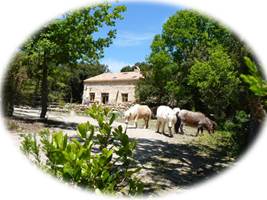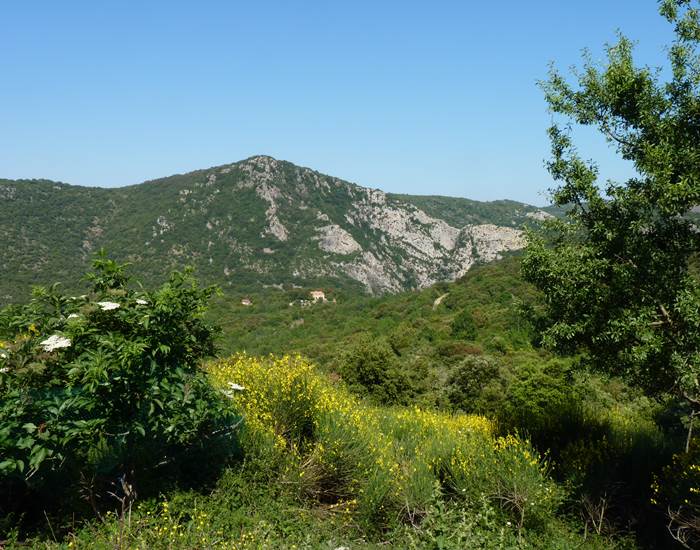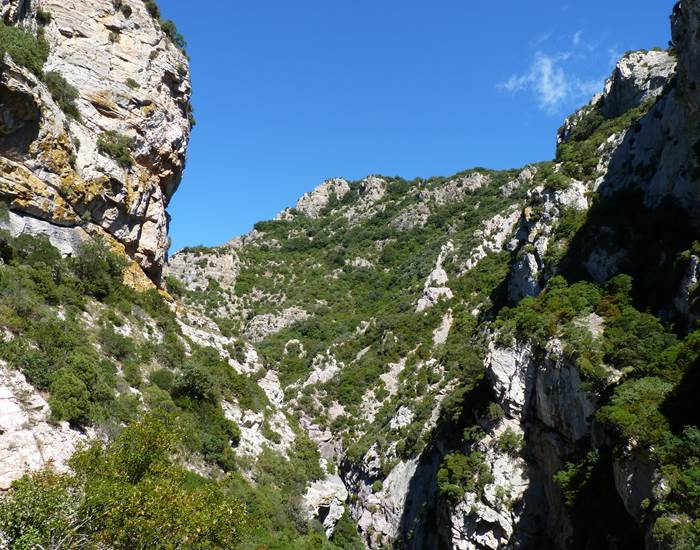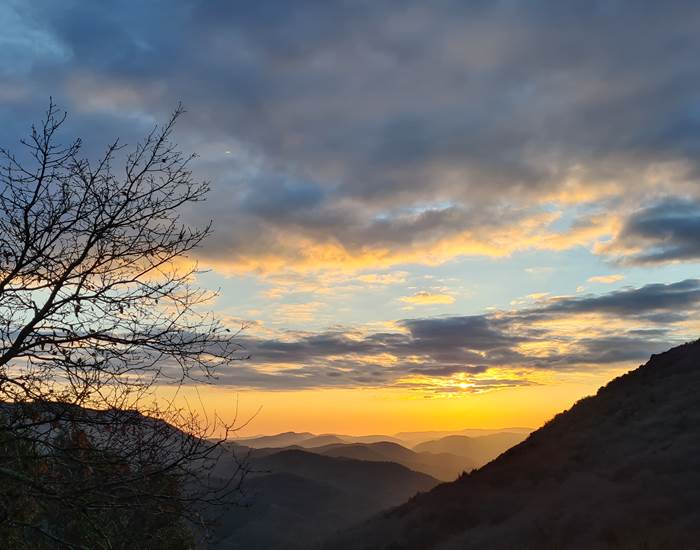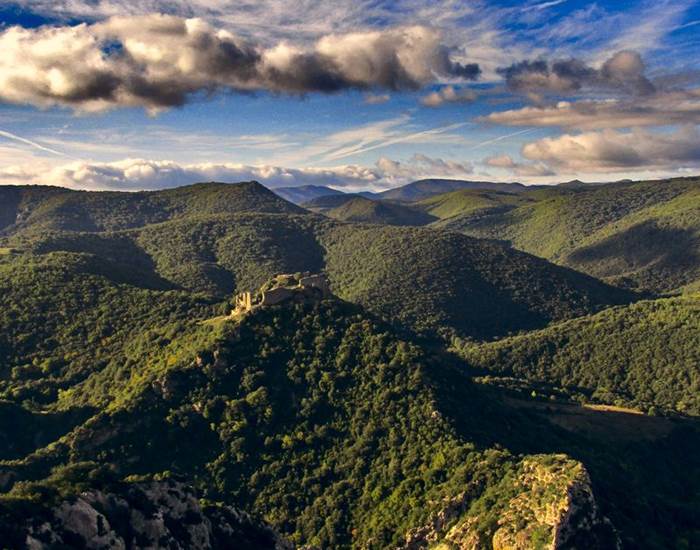Our region
Geography
Located between the Pyrenees chain to the south and the foothills of the Massif Central to the north, the Hautes-Corbières constitute the northernmost mountainous link of the north-Pyrenees zone, in the very heart of the Corbières-Fenouillèdes regional natural park (PNR).
Climate, fauna and flora
The climate of our region is Mediterranean. The result is lush vegetation of holm oaks, pines, arbutus trees, juniper, cade, lavender, marjoram, rockroses, cypresses and numerous orchids. The vines, still predominant in the lower Corbières, produce excellent wines, Corbières and Fitou.
In spring, nature plunges into a veritable bath of flowers. For hours, you will walk on flowery meadows of the high plateau, without meeting anyone, apart from the shepherd, contemplating a grandiose panorama: hundreds of kilometers of Pyrenees peaks, snow-capped until July, and to the north the mass dark of the Montagne Noire and the foothills of the Massif Central. At sunset, the spectacle of the rocky mountains of Corbières plunging into the sea opens.
Even in summer, the nights are pleasantly cool, clear and free from any air pollution. They will offer you sunset spectacles and a night sky of breathtaking clarity.
Autumn, too, offers us its particular charms. Often the days are still pleasantly mild until the end of October. After the September harvest, the vines turn bright yellow and red. It is then the season for chestnuts that you will roast in the pan.
